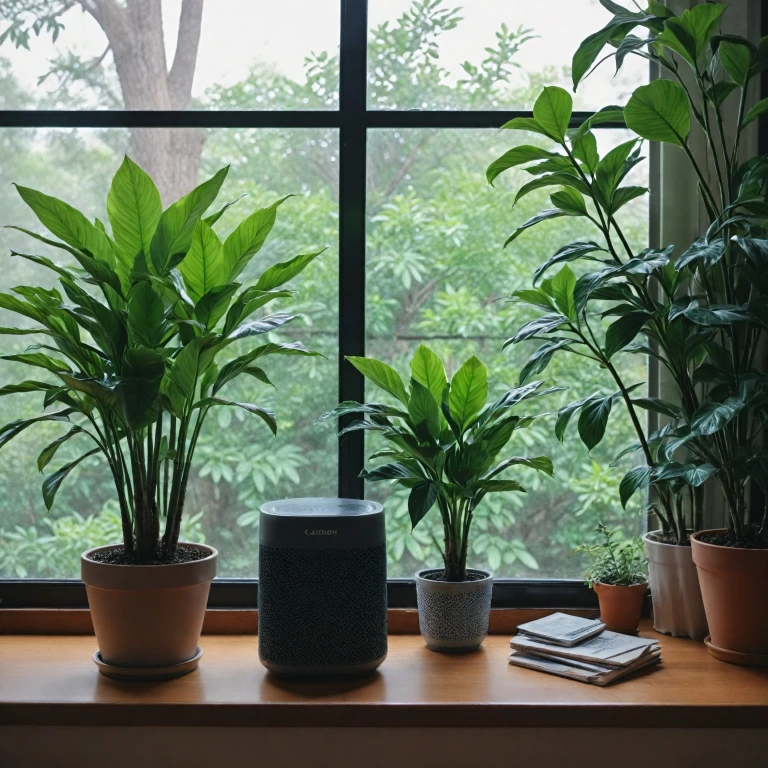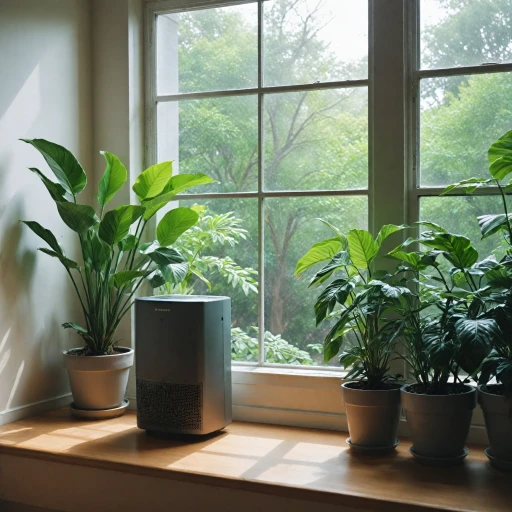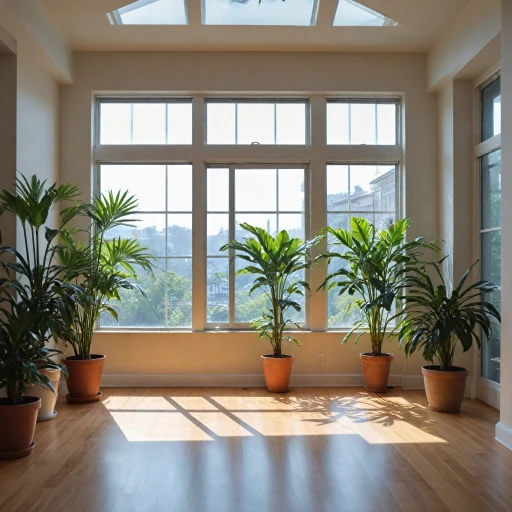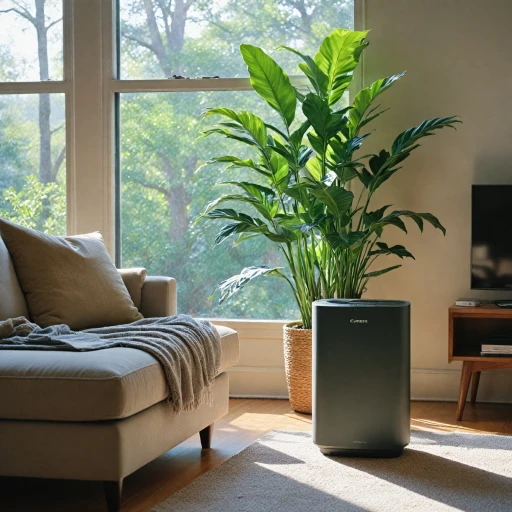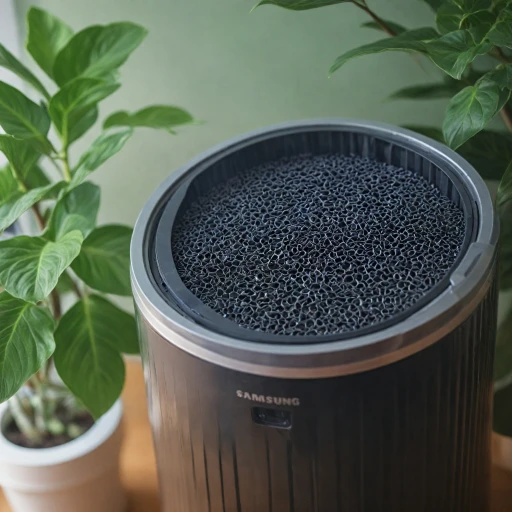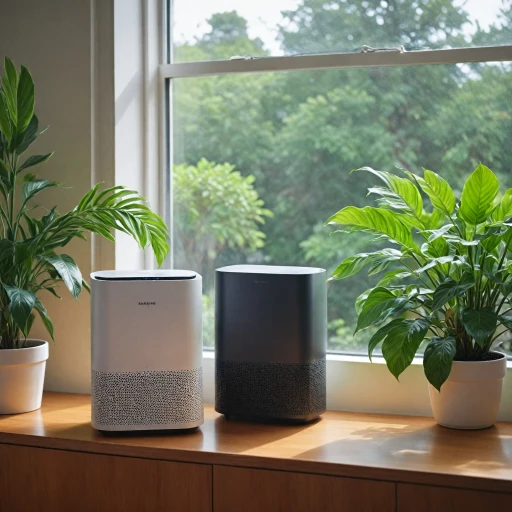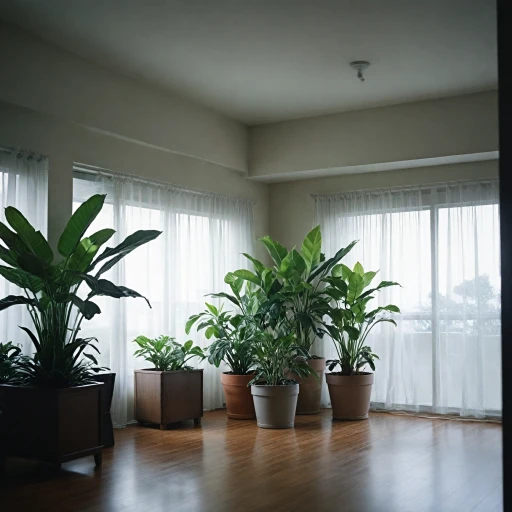How Charcoal Air Filters Work
Mechanism of Charcoal Air Filters
Charcoal air filters have gained a reputation for their effectiveness in improving air quality by eliminating a variety of indoor pollutants. These filters utilize activated carbon, a form of carbon that has been treated to have small, low-volume pores that increase surface area and enhance the adsorption process. Activated carbon filters work by trapping chemicals, odors, and volatile organic compounds (VOCs) in their porous structure. This mechanism is known as adsorption, wherein pollutants adhere to the surface of the carbon without the use of chemical reactions. As a result, charcoal filters are able to effectively filter out harmful contaminants. One feature that sets charcoal filters apart from other types of air purifiers is their ability to neutralize odors. Unlike HEPA filters, which are designed to capture particulate matter, carbon air filters are particularly efficient at targeting gases and odors, making them an ideal choice for environments plagued by lingering smells or fumes. However, activated carbon filters operate best when used in conjunction with other air purification systems. Many air purifiers combine pre filters and HEPA filters with activated carbon to ensure a comprehensive filtration system that addresses both particulates and gaseous pollutants. For more information on the benefits and workings of activated carbon filters, you can explore additional resources. In considering the use of a charcoal filter, various factors such as filtration speed, measured in cubic feet per minute (CFM), need to be taken into account. This will ensure the filter is adequately sized for the area it is intended to purify. Understanding how these filters work lays the foundation for comparing their effectiveness with other systems and assessing their suitability for individual needs.Comparing Charcoal Filters with Other Types
Drawing Comparisons Between Filters
When evaluating air purification options, a common question involves how charcoal air filters compare to other types available. Charcoal, or activated carbon filters, are renowned for their ability to remove certain gases, odors, and volatile organic compounds (VOCs) from the air. But how do they stack up against other filtration methods?
HEPA filters are another popular choice, celebrated for their efficiency at trapping particulates such as pollen, dust mites, and pet dander. The difference with charcoal filters is that while HEPA excels in particulate removal, they do not tackle odors or gases. For optimal performance, many air purifiers integrate both HEPA and activated carbon technologies, creating a comprehensive solution for air quality challenges.
Let's consider carbon filters in the context of pre filters. Pre filters are designed to catch bigger particles, effectively extending the life of the primary filtration system by preventing larger debris from clogging the more specialized filters. While pre filters operate as a preliminary defense, charcoal filters handle the more nuanced task of extracting odors and harmful gases following their initial diffusion into the air.
When weighing these options, factors like filter lifespan, price, and CFM (cubic feet per minute, a measure of airflow) should be considered. Additionally, availability of replacement filters and free shipping can impact your decision. To deepen your understanding of these variations, visiting our comprehensive guide on charcoal filters in air purifiers might prove beneficial.
Benefits of Using Charcoal Air Filters
Advantages of Utilizing Charcoal Air Filtration
Charcoal air filters have become a popular choice for many households and public spaces, but what makes them so appealing? Here are some of the key benefits of using charcoal air filters in your air purification system:- Effective Removal of Odors and VOCs: Activated charcoal filters are excellent at trapping odors and volatile organic compounds (VOCs) that can lurk in the air. This is particularly beneficial for keeping spaces smelling fresh and reducing potentially harmful air quality impacts from substances like cleaning products and paints.
- Superior Filtration Efficiency: When compared to standard air filters, charcoal air filters exhibit superior efficiency in trapping impurities. While traditional filters may only capture larger particles, activated carbon works at a microscopic level to absorb gases and odors, enhancing the overall air filtration process.
- Compatibility with Other Filtration Systems: Charcoal filters can be easily integrated with other types of filtration technologies, including HEPA and pre filters. This series of filters can work together in an air purifier to provide layered protection, improving air quality significantly.
- Medical Grade Air Purification: Many charcoal filters are part of medical grade purification systems. These are designed to meet strict air quality standards, making them an ideal choice for sensitive environments such as hospitals and clinics.
- Environmental and Economic Benefits: Charcoal air filters are often marketed as environmentally friendly due to their ability to be replaced without significant waste. Additionally, the overall cost-effectiveness, taking into account factors like sale price and free shipping options, makes them an attractive option.
Considerations When Choosing a Charcoal Air Filter
Key Factors in Choosing a Charcoal Air Filter
When selecting a charcoal air filter for your air purifier, several important considerations can guide your decision. These factors ensure that the filter meets your specific needs and provides optimal air quality improvement.
- Filtration Efficiency: Look for filters with a high MERV rating, which indicates better filtration efficiency. A medical-grade filter can capture more particles, including VOCs and odors.
- Activated Carbon Content: The amount of activated carbon in the filter, often measured in lbs, directly impacts its ability to absorb pollutants. More carbon means better filtration of odors and gases.
- Size and Compatibility: Ensure the filter fits your air purifier model. Check the dimensions and confirm compatibility with your specific purifier series.
- Airflow and CFM: Consider the filter's impact on airflow. A higher CFM rating indicates better air circulation, which is crucial for maintaining good air quality.
- Price and Replacement Costs: Evaluate the initial sale price and the cost of replacement filters. Some brands offer free shipping, which can reduce overall expenses.
- Pre-Filters: Some systems include pre-filters that capture larger particles before reaching the charcoal filter, extending its lifespan.
Understanding these factors can help you make an informed decision when choosing a charcoal air filter, ensuring it aligns with your air quality needs and budget.
Maintenance Tips for Charcoal Air Filters
Routine Upkeep for Maximum Efficiency
Maintaining charcoal air filters is crucial for ensuring their longevity and effectiveness in air filtration. Regular upkeep will help in eliminating odors and removing volatile organic compounds (VOCs) from your environment.
- Monitoring Filter Condition: Keep an eye on the condition of your carbon filters. Over time, they can become saturated with pollutants, affecting their ability to cleanse the air efficiently.
- Timely Replacement: Unlike washable filters, most activated charcoal filters require periodic replacement. Most manufacturers recommend replacement every 3 to 6 months, but this can vary based on usage and air quality. Always refer to your purifier’s user manual for guidelines.
- Compatible Parts: When buying replacement filters, ensure they are compatible with your air purifier model. Choosing the right series and ensuring a precise fit guarantees optimal air filtration performance.
- Pre-Filter Maintenance: If your purifier includes a pre-filter, it can be vacuumed or washed routinely. This action helps extend the life of activated carbon filters by capturing larger particles, such as dust and pet dander, before they reach the carbon layer.
- Storage Tips: If you purchase filters in advance to take advantage of free shipping or sale price, store them in a cool, dry place to preserve their activated carbon properties.
Maintaining these medical-grade filters ensures your air purification system consistently operates at its highest efficiency, safeguarding your air quality against pollutants. Regular attention to the upkeep of charcoal air filters not only secures the environmental benefits discussed previously but also maximizes your investment by prolonging the life of your air purifier.
Real-Life Applications of Charcoal Air Filters
Practical Uses of Charcoal Air Filters
Charcoal air filters, known for their activated carbon properties, are widely used across various settings due to their effective air filtration capabilities. These filters are particularly beneficial in environments where odor control and the removal of volatile organic compounds (VOCs) are crucial.
Household Applications
In homes, charcoal air filters are commonly integrated into air purifiers to enhance indoor air quality. They effectively capture odors from cooking, pets, and smoking, making them a popular choice for households seeking a fresher environment. Additionally, these filters can be found in HVAC systems, where they work alongside HEPA filters to provide comprehensive air purification.
Industrial and Commercial Use
Industries that emit strong odors or VOCs, such as manufacturing and chemical processing, often rely on activated carbon filters. These filters are part of larger air filtration systems designed to meet stringent air quality standards. In commercial settings like restaurants and hotels, charcoal filters help maintain a pleasant atmosphere by neutralizing odors and improving air quality.
Medical and Laboratory Environments
Medical-grade air purifiers with charcoal filters are essential in healthcare facilities and laboratories. They ensure a clean and safe environment by removing harmful airborne contaminants. The combination of charcoal and HEPA filters provides a high level of air purification, crucial in settings where air quality directly impacts health outcomes.
Transportation and Public Spaces
Charcoal air filters are also used in public transportation systems and airports to manage air quality in high-traffic areas. By reducing pollutants and odors, these filters contribute to a more comfortable experience for passengers. In vehicles, they help maintain a clean cabin environment by filtering out exhaust fumes and other pollutants.
In summary, the versatility and effectiveness of charcoal air filters make them an integral part of air purification systems across various sectors. Their ability to tackle odors and VOCs while enhancing overall air quality underscores their importance in both residential and commercial applications.
